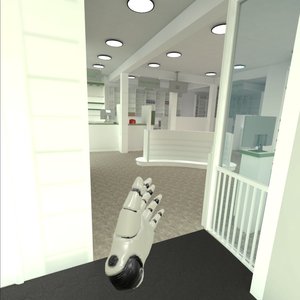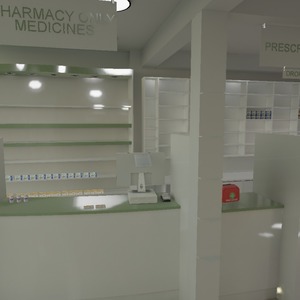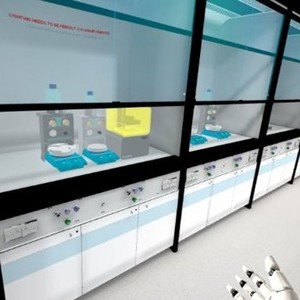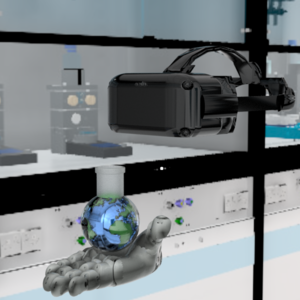Virtual Reality Training
University College London School of Pharmacy and Frimley Hospitals NHS Foundation Trust
Background
Rapid scientific advances and an increasing digitisation of healthcare mean that there is a growing need to develop new paradigm approaches to training in order to meet the objectives of the NHS long-term plan.
However, as the pace of advances grow, there are associated increasing pressures on both the nearly 1.3 million personnel and physical infrastructure of the NHS. This pilot project will address this challenge by demonstrating that Virtual Reality based digital-twin environments of existing NHS facilities and equipment can provide sustainable, realistic and space-unlimited training environments for NHS personnel to address the objectives of The People Plan.
Project Aim
Whilst Virtual Reality allows for the creation of unique digital environments, this project focuses on the concept of digital-twins, where real physical environments are re-created as exact replicas in VR. Using this approach, healthcare professionals will be remotely trained in their exact working environments. As this often involves multiple locations by multiple professionals, this project will reduce the burden on physical infrastructure needed with traditional training and also increase the number of training opportunities available. In order to demonstrate its potential, this project focuses on the creation of a digital-twin Pharmacy and demonstrate the potential of VR for NHS training.
Project Objectives
In this project, in partnership with Frimley NHS trust, we will build a digital-twin CAD model of an existing Pharmacy that is currently used to treat patients and train NHS personnel. Once complete, it will be converted into a multi-user environment that can be accessed anywhere worldwide. Using Oculus Quest-based headsets, we will explore how Pharmacists can access this whilst in disparate locations. This will allow us to evaluate its learning potential and demonstrate that our belief of “sending headsets, not people” is a sustainable low-carbon approach to training in the NHS.
Outputs
In this pilot project we will have created and evaluated a multi-user digital-twin Pharmacy learning environment accessible via Virtual Reality headsets. We will have explored a range of learning scenarios and evaluated methods of teaching to explore how it can be used to improve the training of healthcare professionals. Using an existing physical Pharmacy and its VR digital twin, we will compare and contrast real versus virtual training and outline the next steps towards the wider implementation and use of VR across the NHS to meet the longer-term ambitions of the NHS plan.



Project Team
Name
Organisation
Role
Zaid Muwaffak
UCL School of Pharmacy
Accountable Officer
Dr Stephen Hilton
UCL School of Pharmacy
Project Lead
Stuart Dark
Frimley Health NHS Foundation Trust
Project Team



